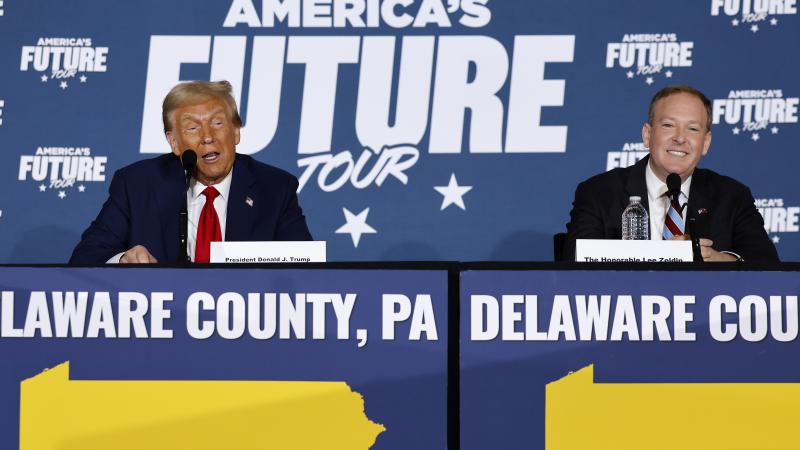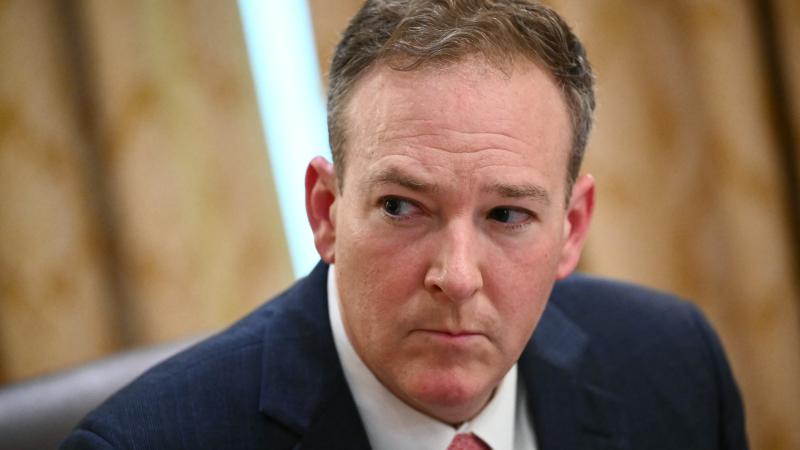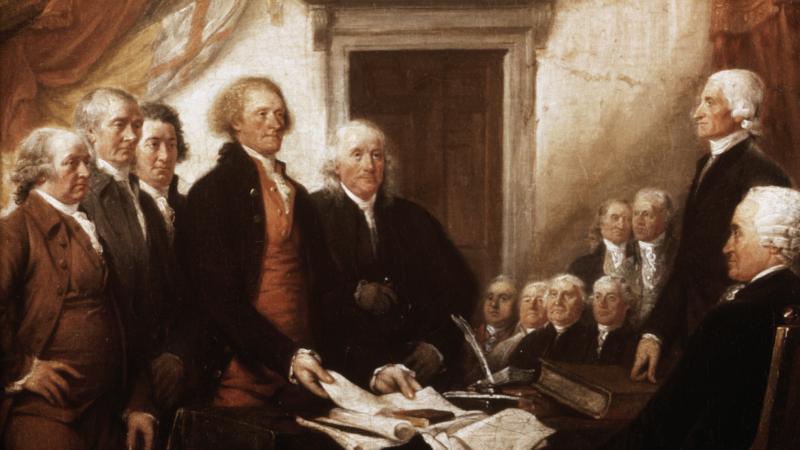Sen. Mike Lee’s plan to sell-off federal lands runs into heavy turbulence
The choice of lands sold would fall to the secretaries of the Interior and Agriculture, who would have to identify between roughly 2 and 3 million acres for sale. His plan is being opposed from the far-left as well as mainline conservatives.
Sen. Mike Lee, R-Utah, has stirred up a hornet’s nest on both the political left and right with a plan to sell off millions of acres of federal land to build housing, potentially jeopardizing passage of the “Big, Beautiful Bill” as bipartisan opposition reaches a boiling point.
“The U.S. government owns 640 million acres—nearly a third of all land in the U.S.,” Lee has stated. “Making a fraction of one percent of that land available for housing—land found in or next to existing residential developments—would help alleviate the housing shortage in federal-land states.”
Lee’s plan takes the form of an amendment to the One Big, Beautiful Bill Act, which the House has already approved. The upper chamber is expected to vote on its version of the plan in the coming weeks, a process that would presumably include a vote on the Lee Amendment. The provision itself would require the sale of between 0.5% and 0.75% of land in the possession of the Bureau of Land Management (BLM) for the development of affordable housing.
File
Details of the Lee Amendment
The choice of lands sold would fall to the secretaries of the Interior and Agriculture, who would have to identify between roughly 2 and 3 million acres for sale. Based on the criteria for eligibility, the Wilderness Society has estimated that nearly 259 million acres would become available for sale, including 164 million acres solely under BLM management.
The Interior Secretary would be responsible for identifying BLM lands for sale while the Agriculture Secretary would look into lands under the purview of the Forest Service.
Little public polling exists on Lee’s specific proposal, though a survey from YouGov, commissioned by the Trust for Public Land, found broad general opposition to selling federal lands. Overall, 71% of U.S. adults opposed selling national public lands, including 85% of 2024 Harris voters and 61% of 2024 Trump voters. Just 10% overall supported the sale of national public lands. Conducted in March 2025, the survey questioned 4,000 U.S. adults and has a credibility interval of +/- 3.1%.
The critics' rebuke
Critics have expressed concerns the proposal could damage the nation’s scenic landscapes, interfere with law enforcement activities, and upend livestock industries. Lee, for his part, has insisted that the proposal “is about unused federal land that is in residential areas or creates checkerboard patterns—not about the breathtaking landscapes that make America so beautiful.”
Notably, his amendment requires that the lands selected for sale receive a nomination from states or local governments, be adjacent to existing developed areas, be accessible to current infrastructure, be suited for housing development, or be isolated or selected to reduce “checkerboard land patterns.”
Despite the exemptions, however, the broad discretion the bill affords to state and local governments in nominating land seems to have an unusual coalition of environmentalists and traditionally conservative constituencies balking at the bill.
“One of the things that we do know is many people in the Western states already have leases on that land for cattle, for horses, hunting, and there is tremendous concern about this,” Sen. Marsha Blackburn, R-Tenn., said on the “Just the News, No Noise” television show last week.
An immigration issue in the mix
Blackburn further highlighted concerns from law enforcement about maintaining access to federal lands as many parcels are part of illegal immigration travel routes.
"You've talked about some of that that falls in migrant patterns, and Border Patrol has said, 'No, we need access to that land so that we can continue with closing these pathways that migrants have used,'" the Tennessee Republican added.
“President Trump has been so successful in securing the border, and you've got Secretary Noem and Tom Homan who have worked tirelessly on this issue. And we need to listen to Border Patrol when they say, ‘here's an area we need to hold access to it,’” she went on. “It's not saying, they're not saying ... you can't ever sell it. They're just saying this is not something that you can throw somebody up against a deadline because there are people that actually are leasing this land from the federal government, or something that our security interests need to have access to.”
Among the most vocal opponents of the plan is conservative environmentalist Benji Backer, who has pressed Lee to produce a map of the public lands he hopes to sell. Note that the Wilderness Society estimate is an outside calculation based on the loose eligibility terms outlined in the bill’s text.
“Provide us a map of the land you’re trying to sell. It’s pretty simple. If you’re selling 3 million acres of OUR land, we deserve to know what’s being sold,” he asked Lee on social media. “Is there a reason you’re not being transparent with the American people?”
Mainline conservatives, for their part, have proposed that the administration prioritize deportations to free up existing housing for Americans.
“We don’t need to sell federal land and turn our wilderness into housing developments,” insisted the Daily Wire’s Matt Walsh. “If we need more housing, let’s round up all the illegals who don’t belong in this country and evict them. That’ll free up millions of housing units in one fell swoop. Leave the federal land alone. America’s natural beauty must be protected.”
Left-of-center organizations are equally livid about the proposal. The George Soros-backed Center for American Progress, for its part, asserted this week that “the Senate is advancing a reckless anti-public lands proposal masquerading as a housing solution.”
The plan faces an uncertain future in the upper chamber as backlash mounts. Should the Senate approve it as part of the final bill, however, it will likely prove a sticking point in the reconciliation process as the House approved no comparable provision.
The Facts Inside Our Reporter's Notebook
Documents
File















